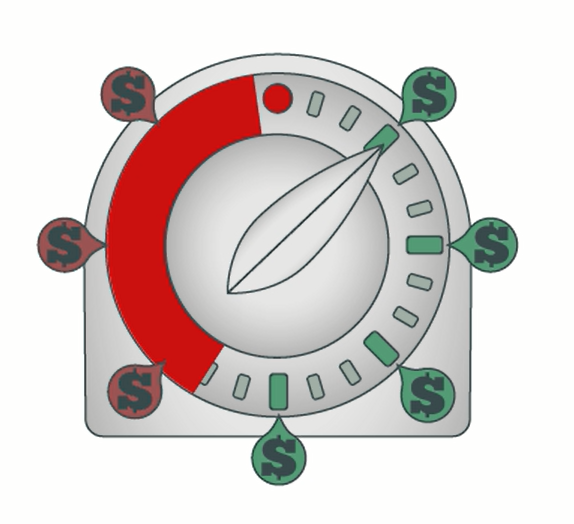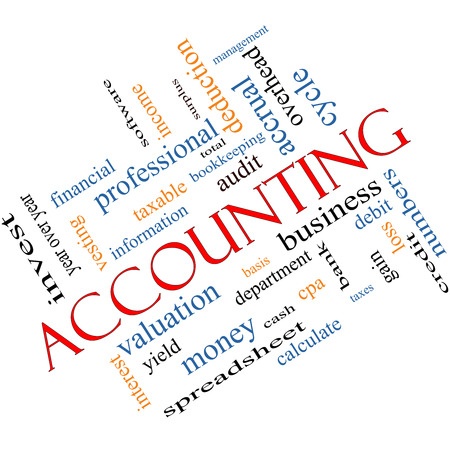Sole Trader Accounting Software

After creating your account, everything is set up so you can get started. Your data is always available, and backed up for extra peace of mind. Credit is recorded to the cash account, and debit is recorded to the equipment account.
If you don’t have a lot of transactions or don’t plan on expanding your business anytime soon, then a manual system might be sufficient. However, if you have a lot of transactions or want to scale your business in the future, then investing in accounting software is worth considering. If you’re traveling and have numerous related expenses on the road, for example, then you can often take pictures of receipts with your smartphone. Some accounting services attach these receipts to a manually entered expense form.

It involves matching the transactions recorded in your bookkeeping system with those on your bank statement. Bank errors, missing transactions, and timing differences can all cause discrepancies between your records and your bank statement. Furthermore, reviewing bank statements and reconciling accounts provides an opportunity to detect any discrepancies or fraudulent transactions. It is important for sole traders to keep up-to-date with their financial records throughout the year so that they can make informed decisions regarding investments or other expenditures. Seeking professional assistance when needed is an essential tip for effective sole trader bookkeeping.
Patriot Software Accounting
If you need to have multiple people within your organization regularly leverage the solution, you might want to explore the possibility of leveraging a paid option. As your business expands, leveraging an accounting platform with an accessible interface and straightforward functionality is in your best interest. So when you’re trying to pin down the right free accounting software for your company, prioritize accessibility.
It’s important to perform regular reconciliations to ensure accurate financial reporting and manage cash flow as a sole trader effectively. Set aside time each month to reconcile all accounts and use this process as an opportunity to review statements for any unusual activity or potential fraudulent charges. You may also want to import bank transactions into your bookkeeping system to help with reconciling Sole trader bookkeeping bank accounts. By managing your finances effectively as a sole trader, you can achieve sole trader net income that reflects the true value of your business. Proper bookkeeping is essential for the success of any sole trader business in Australia. It allows owners to manage cash flow effectively, make informed decisions about future investments or expenditures and ensure compliance with taxation laws.
These tools offer a range of features such as expense and income tracking, invoice creation, and automatic bank account feeds. Late payments can create cash flow woes, especially for sole traders. FreshBooks lets you build in late fees to encourage clients to pay every dollar you’re owed on time. Automatically set late fees to kick in according to your specific policy. Include the details of your late fee policy in your invoice payment terms so clients are never surprised by extra charges.
As well as being a legal requirement, it can benefit your business in other ways. The function of accounting is to prepare a record of the company’s financial affairs. Accounting includes the interpretation of the numbers prepared by the bookkeeper to determine the financial health of the business. One of the important habits you should develop when you start a business is recording transactions in your general ledger. When you first start a small business, you will hear the terms bookkeeping and accounting used almost interchangeably.
Bookkeeping Methods
For example, opening separate accounts for sales revenue versus expenses allows you to track where money is coming from and going out. Categorising transactions also helps make tax time easier by allowing you to group expenses that are deductible on your tax return. Wave is one of only two online accounting services that you can use for free, unless you need payroll and payments, which you do have to pay for.
- You must also register for and pay goods and services tax (GST) if your annual turnover exceeds a certain threshold.
- Akaunting boasts a base of over 270,000 users and is available in over 50 languages, making it one of the most popular, wide-reaching open-source solutions on this list.
- Find out what accounting software they use, and if they’d recommend it.
- If you choose to use the Professional plan, you’ll also have access to purchase orders, sales orders, inventory, and a client portal, where you can share documents and invoice clients directly.
- If you’re traveling and have numerous related expenses on the road, for example, then you can often take pictures of receipts with your smartphone.
Also available are the Premium plan, which is $45/month and supports up to 500 clients, and the Select plan with custom pricing for more than 500 clients. Only you can determine which features are important and whether the products you’re interested in include them. That said, here are our picks for the best accounting software for self-employed individuals. To ensure compliance and avoid penalties, it’s crucial to accurately estimate your tax liability and make timely payments on account by the designated deadlines. Online accounting systems are increasingly popular among small businesses due to their convenience and added functionalities. These systems eliminate duplication and offer features which will save you time and money.
For instance, being VAT registered can enhance your company’s perceived size and credibility. Displaying a VAT registration number on your website can give the impression of a larger business. Again, late filing penalties apply if you miss this deadline, even if you have no tax to pay. If you choose to file a paper tax return, it must be submitted by this date. Remember to consult HMRC resources for detailed information on tax and National Insurance for the self-employed to ensure compliance with the latest regulations.
If you want to keep your overheads low and avoid paying accounting fees, it is possible to look after your own bookkeeping. However, there are risks as you will need to be 100% accurate with recording your income and expenses. The consequences of making mistakes with your own bookkeeping can be disastrous, particularly if this triggers an unexpected HMRC investigation.
How to Write a Business Proposal [Examples + Template]
Accounting software, like the Countingup app will save you hours of admin time on your bookkeeping. The key attributes of a good bookkeeper are being a stickler for accuracy and completeness. Because even the most thorough bookkeeper can make mistakes, a bookkeeper usually works under the direction of an accountant unless the business is very small. If the business is very small, bookkeeping may be very much like keeping your checkbook.
There’s a Pro plan for two users that runs $19/month, and Plus, Team, and Unlimited user plans are also offered. As a sole trader, it is essential to complete an annual Self Assessment Tax Return and submit it to HM Revenue and Customs (HMRC). This process provides HMRC with accurate information about your income and expenses, ensuring you are taxed correctly. From recording income and expenses to understanding tax obligations, keeping track of your finances means you stay on the right side of tax regulation. We have a range of online bookkeeping services that can help to handle day-to-day record keeping and provide a smoother process for sending receipts, invoices and expenses digitally. These intuitive platforms also enable you to make commercial decisions with greater foresight.
It’s essential to be proactive about your tax obligations to avoid any penalties or interest charges for late payment. When it comes to bookkeeping for sole traders, the first decision to make is whether to use a manual or computerised system. Manual systems can be cheaper to set up and maintain, but they are time-consuming and prone to human error. Most small business accounting services also offer the option to import existing lists in formats such as CSV and XLS. In many cases, free accounting solutions are designed to help get you off the ground. Upgrading from yours is something you need to feel out for yourself.
Being a sole trader means taking care of your own income tax with a Self Assessment tax return. You set your own hours, find your own clients and do your own bookkeeping. Pricing begins at $12.50/month for the Simple Start plan, which goes up to $25 after three months. Reporting options in OneUp are good, with reports available in three categories — accounting and financial reports, expense reports, and inventory reports. One feature that sets AccountingSuite apart is its budgeting capability, which allows you to create a current or future year budget with the ability to choose the accounts you wish to include.
If you know nothing about accounting, Zoho Books is the right software for you. A great fit for self-employed individuals, Zoho Books offers three plans, all with a ton of features. Particularly well-suited for businesses that sell products and need to manage inventory, Zoho Books also works with several online payment gateways for easy customer payment. Alternatively, many business owners choose to use commercial bookkeeping software.
You are unable to access www.sage.com
Some applications are better suited to self-employed individuals or sole proprietors than they are to small businesses that have several employees or are in a growth state. As well as your income and expenses, it’s crucial as a sole trader to understand your tax obligations and set aside the necessary funds each year. This is essential for completing your Self Assessment, which determines the amount of tax you owe. By having a dedicated business bank account, you can easily track and record your business-related expenses and income. This simplifies the process of completing your annual accounts and Self Assessment Tax Return, saving you valuable time and effort. Driving out to jobs, stocking up on office supplies or taking clients out to lunch – whatever your life looks like as a sole trader, we make it simple to track expenses.
The Ability to Export Your Records
One of the main reasons for good bookkeeping is that it gives you the ability to build an effective accounting strategy. If you have to take delayed payments, consider asking for at least some of the money upfront, and introduce penalties for repeat offenders. Remember, if you’re working from home, you can still claim many of these expenses because your home still counts as your business premises. Any money that you earn over your personal allowance will be taxed – this is called your taxable income. The percentage you’re taxed depends on how much you earn, like this.
You can save it as a draft or a final version and either print it or email it. You can create a PDF version of the invoice, copy it, record a payment on it, and set it up to recur on a regular schedule. Next, you have to ask yourself whether you want access to the transactions you have stored in online financial accounts (checking, credit cards, and so on). Enter your login credentials for that account and the software imports recent transactions, usually 90 days’ worth, and adds them to an online register. Banks have been tightening up their security (which is a good thing), but you may have to jump through a couple more hoops to get connected.
Some software options will come with a pre-set chart of accounts templates, while others may allow you to customise your own. Whatever system you choose, make sure to review and update it regularly so that it accurately reflects your business transactions throughout the year. That way, you’ll have a better idea of how much you owe in taxes before the end of the financial year and can plan accordingly.

Comments are closed.